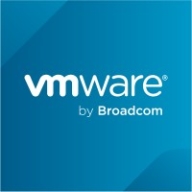

LoadBalancer Enterprise and VMWare Avi Load Balancer compete in the load balancing and network management category. VMWare Avi Load Balancer edges out with its flexibility and analytics, showing strength in deployment capabilities.
Features: LoadBalancer Enterprise provides straightforward installation and easy management, requires no deep Linux expertise, and effectively distributes loads. VMWare Avi Load Balancer offers flexible deployment, a user-friendly control plane, and extensive visibility with robust analytics.
Room for Improvement: LoadBalancer Enterprise could benefit from more intuitive configuration and better scalability, with enhanced integration with third-party services and improved security measures. VMWare Avi Load Balancer needs better documentation and VMware product integration; its pricing complexity and feature add-ons present challenges.
Ease of Deployment and Customer Service: LoadBalancer Enterprise focuses on on-premises environments with exceptional support noted for reliability and satisfaction. VMWare Avi Load Balancer is praised for versatile cloud deployment but needs improvement in support resolutions and comprehensive service.
Pricing and ROI: LoadBalancer Enterprise's competitive pricing and flexible licensing deliver value despite its non-cheapest status. VMWare Avi Load Balancer offers competitive pricing compared to large competitors, with flexible licensing tailored to various needs.
| Product | Market Share (%) |
|---|---|
| VMWare Avi Load Balancer | 5.6% |
| LoadBalancer Enterprise | 4.6% |
| Other | 89.8% |


| Company Size | Count |
|---|---|
| Small Business | 9 |
| Midsize Enterprise | 2 |
| Large Enterprise | 12 |
| Company Size | Count |
|---|---|
| Small Business | 2 |
| Midsize Enterprise | 2 |
| Large Enterprise | 4 |
LoadBalancer Enterprise offers a reliable, high-availability solution designed for efficient load distribution and a user-friendly interface, catering to teams with foundational network expertise.
LoadBalancer Enterprise enhances network performance through effective traffic routing, monitoring, and high availability. Users benefit from SSL termination with SNI and Layer 7 load balancing, ensuring seamless connections with reduced complexity compared to alternatives. While known for its user-friendly approach, improvements in configuration simplicity, scalable hardware upgrades, and enhanced notification systems are often discussed for better user experience. Additional demands include HTTP API access, automated configuration backups, DNS load balancing, and enhanced graphing data capabilities. Competitive pricing and heightened security for sensitive data are frequently requested. Interface refresh issues and Microsoft compatibility are noted among users, who deploy it for SSL/HTTP traffic management, redundancy, failover capabilities, web filtering, and cloud migration support.
What are LoadBalancer Enterprise's key features?LoadBalancer Enterprise is implemented across industries for managing SSL/HTTP traffic, enhancing network reliability, and providing failover capabilities. It supports web filtering, balances Exchange and application servers, facilitates cloud migration, and manages multiple ISP lines for optimal traffic distribution across web applications and services, including SIP provisioning. Industries also use it for enhancing security with web application firewalls, DNS sharing, and application publishing.
Avi Networks Software Load Balancer is an application delivery controller (ADC) platform. The solution provides scalable application delivery across any infrastructure and allows your organization to deliver multi-cloud application services, such as load balancing, autoscaling, application security, container networking, and web application firewall. It is designed with 100% software load balancing to ensure a fast and secure application experience. Additionally, Avi Networks Software Load Balancer offers elasticity and delivers intelligence across any environment.
The Avi Networks Software Load Balancer is unique because
Avi Networks Software Load Balancer Product Highlights
Avi Networks Software Load Balancer Features
Avi Networks Software Load Balancer has many valuable key features. Some of the most useful ones include:
Avi Networks Software Load Balancer Benefits
There are many benefits to implementing Avi Networks Software Load Balancer. Some of the biggest advantages the solution offers include:
We monitor all Application Delivery Controllers (ADC) reviews to prevent fraudulent reviews and keep review quality high. We do not post reviews by company employees or direct competitors. We validate each review for authenticity via cross-reference with LinkedIn, and personal follow-up with the reviewer when necessary.